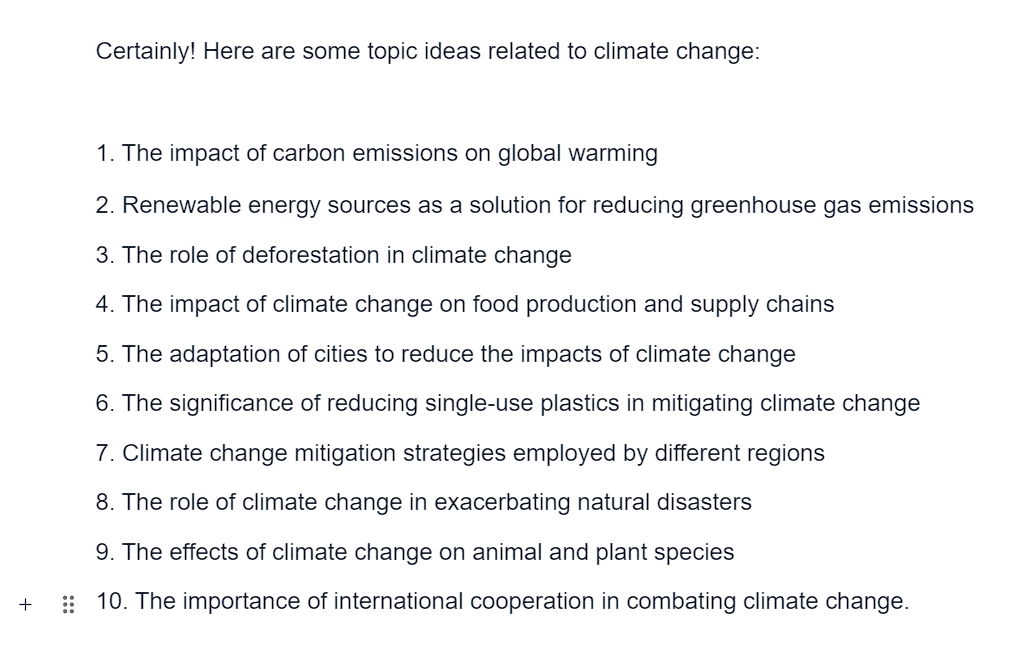When you start writing an essay, one of the most important things to do is choose a good topic. Your topic is like a roadmap that guides the rest of your writing. It helps you stay focused and makes sure your essay makes sense.
A good topic also helps you write something interesting and clear that others will want to read.
In this article, I’ll show you some easy and helpful ways to generate essay topics.
Table of Contents
Understanding the Importance of Choosing the Right Essay Topic
When it comes to writing an essay, selecting a great topic is a key step that can make all the difference. A good topic not only inspires you to write but also grabs the reader’s attention, making them want to read more.
In school, your essay topic is the foundation of your entire argument or discussion. So it’s essential to choose one that’s both interesting and manageable.
A well-chosen topic gives you a clear direction for research, allowing you to dive deeper into the subject and explore it thoroughly.
It also encourages you to think critically, be creative, and analyze information — all important skills for writing a top-notch essay. By selecting a suitable topic, you can showcase your knowledge, demonstrate your understanding, and convey your message clearly and effectively.
On the other hand, a poorly chosen topic can lead to frustration, writer’s block, and an essay that falls flat. If your topic is too broad or too narrow, it can be overwhelming or limiting, making it hard to develop a strong argument or provide enough evidence to support your points.
Brainstorming Techniques for Generating Essay Topics
Brainstorming is a great way to come up with ideas for your essay. It’s like a game that helps you think creatively and find interesting topics to write about.
Here are some cool brainstorming techniques to try:
Free Writing: Set a timer for 10-15 minutes and write down as many ideas as you can think of. Don’t worry about spelling, grammar, or making sense. Just write! This helps get your creative juices flowing.
Mind Mapping: Start with a big idea and create a map of related ideas, words, and concepts. This helps you see connections and patterns that can lead to great essay topics.
Listing: Make a list of words, phrases, or ideas related to your subject. Then, try combining them in different ways to create interesting topics.
What-If Scenario: Ask yourself “what if” questions that challenge your assumptions. Try to imagine different outcomes. This can help you come up with unique and engaging topics.
Reverse Brainstorming: Think of a problem or issue and brainstorm solutions. Then, flip it around and think of problems that might come up with those solutions. This can help you develop complex and interesting essay topics.
Leveraging AI Tools like Language Models for Essay Topic Generation
Do you know how sometimes you get stuck thinking of an idea for your essay?
Well, there’s a cool way to get help – by using AI tools!
AI can help you come up with essay topics in just a few seconds.
Benefits of Using AI Tools
- Saves Time: AI tools can give you lots of essay topic ideas fast, so you can focus on writing.
- Gives You Out of the Box Ideas: AI tools can look at what’s happening in the world and suggest essay topics that are relevant and interesting.
- Helps with Creativity: AI tools can mix and match ideas to come up with unique and cool essay topics.
- No More Writer’s Block: AI tools can give you a starting point for your essay, so you don’t get stuck.
How to Use Blainy AI for Essay Topics
- Click AI Commands: Click on the AI Command button at the bottom.
- Write the Subject: Provide a general prompt. For example, write “Provide me a list of topic ideas on climate change”.

- Get Your Topics: The AI tool will give you a list of essay topic ideas.

- Pick the Best One: Look at the topics and choose the one that works best for you.
Refining Your Essay Topic with Research and Analysis
Refine your essay topic by conducting preliminary research and analysis. This step helps you narrow down your topic, clarify your research question, and develop a clear argument or thesis statement.
Conducting Preliminary Research
- Consult academic sources, such as scholarly articles and books.
- Evaluate online resources, like government reports and educational websites.
- Take notes and organize the information to identify patterns and relationships.
Refining Your Topic
- Identify key concepts and develop a research question.
- Consider multiple perspectives and potential biases.
- Narrow or broaden your topic to ensure it’s manageable and focused.
Tips for Generating Essay Topics in Specific Subjects (e.g. History, Science, Literature)
When it comes to writing essays in specific subjects like History, Science, and Literature, you need to have a good understanding of the subject matter and be able to find interesting topics to write about.
Here are some tips to help you generate essay topics in these subjects:
History
- Focus on a Specific Time Period: Choose a specific era or event in history and explore its importance and impact.
- Analyze Historical Figures: Pick a historical figure and examine their role, influence, and legacy.
- Explore Historical Themes: Investigate themes like colonialism, revolution, or social change and how they affected historical events.
Science
- Explore Current Debates: Look into ongoing debates or controversies in the scientific community and take a stance.
- Investigate Scientific Discoveries: Choose a recent scientific discovery and examine its implications and potential uses.
- Analyze the Impact of Science on Society: Discuss how scientific advancements affect society, including both benefits and drawbacks.
Literature
- Analyze a Literary Theme: Identify a theme in a literary work and explore its significance and relevance.
- Examine Character Development: Choose a character from a literary work and analyze their development and motivations.
- Compare and Contrast Literary Works: Compare and contrast two or more literary works, exploring similarities and differences.
General Tips
- Start with a Broad Topic: Begin with a broad topic and narrow it down to a specific focus.
- Conduct Research: Research your topic to gain a deeper understanding and identify interesting angles.
- Brainstorm Ideas: Brainstorm ideas and potential topics, considering different perspectives and approaches.
Related Reading: Types of Essays
Common Mistakes to Avoid When Generating Essay Topics
When you’re trying to come up with an essay topic, there are some common mistakes you should try to avoid. These mistakes can lead to a bad topic, a lack of focus, and a lower grade.
Here are some mistakes to watch out for:
- Don’t Choose a Topic That’s Too Broad: Avoid topics that are too general or broad. They can be hard to cover in a single essay.
- Don’t Choose a Topic That’s Too Narrow: Also, avoid topics that are too specific or narrow. They might not give you enough to work with.
- Don’t Choose a Topic That’s Too Hard: Be careful of topics that are too complex or technical. They might be hard to research and understand.
- Read the Assignment Guidelines Carefully: Make sure you read and follow the assignment guidelines. If you don’t, you might get a bad grade.
- Do Some Research Before You Start: Do some preliminary research to get a good understanding of the topic. This will help you write a better essay.
- Choose a Topic That’s Relevant: Choose a topic that’s relevant to the course material and assignment guidelines. This will help you stay focused and ensure your essay is on track.
- Choose a Topic You’re Interested In: Choose a topic that you’re interested in and that plays to your strengths. This will make the writing process more enjoyable and help you produce a better essay.
Final Thoughts
When you’re coming up with essay topics, remember that a good topic is the key to a great essay. By avoiding common mistakes, choosing a topic you’re interested in, and doing some research, you can create a topic that shows off your knowledge and skills.
To come up with a great topic, you need to think critically, be creative, and analyze information. If you take the time to develop a clear, focused, and relevant topic, you’ll set yourself up for success. Your essay will be engaging, informative, and showcase your talents.
So, don’t rush into writing your essay. Take your time, think carefully, and choose a topic that you’re excited about. With a great topic, you’ll be well on your way to writing an amazing essay!







